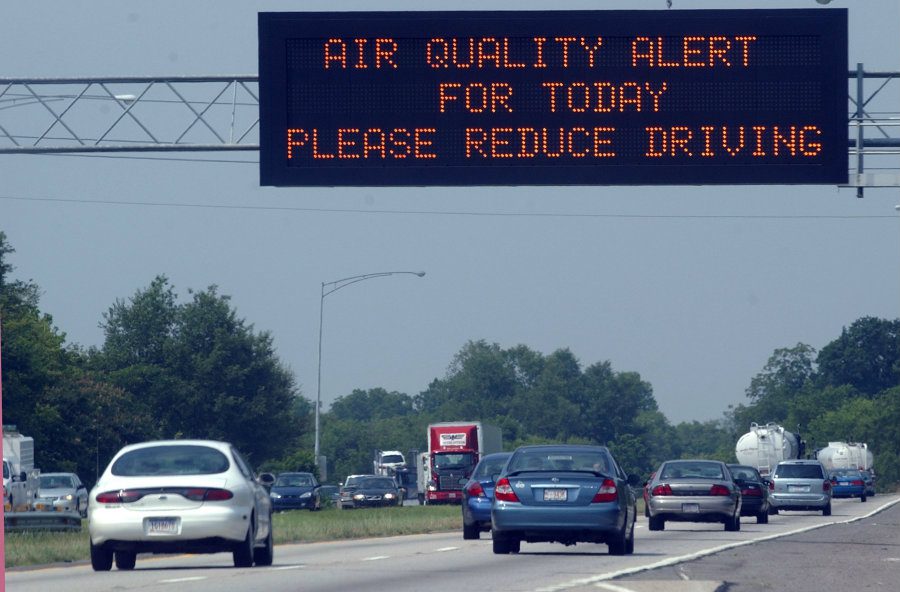Last week’s storm decimated the trees in our yard, exposing raw tissue where limbs severed. Branches, graced by buds that will never open, lay scattered on the killing snow.
Taking in the scene, I felt more grief than shock. Wreckage from erratic weather is one inevitable consequence of an atmosphere turbocharged by excess greenhouse gases.
With coronavirus, as with climate upheaval, our species is confronting realities that are horrifying but should come as no surprise. Scientists have warned repeatedly of devastating pandemics and climate-related disasters – given humans’ runaway consumption, reliance on fossil fuels and disregard for natural ecosystems.
The roots of these crises run deep, and there will be no quick-fix solutions.
Talk of a speedy “return to normal,” led by the Cheerleader in Chief, is medically ill-advised and morally indefensible. More fundamentally, it demonstrates a failure of vision. Why aspire to the “recovery” of an economy inherently at odds with earth systems?
Like trees in a storm, the basic life supports we count on for nourishment and health have proven far more brittle and vulnerable than we ever imagined. The pandemic has revealed fundamental fault lines in our social fabric, laying bare enduring racial and environmental injustices.
COVID-19 is more than a medical and economic challenge. It represents an urgent wake-up call to create a more sustainable, just and resilient way of life. We need to reinvent societal structures to minimize environmental impact, maximize equality and withstand shocks.
Some steps we’ve begun taking temporarily – like remote work and teleconferencing in lieu of air travel – could help if continued. Lockdown restrictions and economic worries are forcing upon us more conscious consumption and greater reliance on local supply chains.
But far bigger steps lie ahead. Beyond adjusting personal habits, we need systemic change – in energy, agriculture, transportation, construction, education and, most obviously, healthcare.
Sadly, we can expect little support from the White House during the rest of the year. The Trump administration is using this crisis to further weaken environmental standards and to attempt cutting SNAP benefits at a time of unprecedented hunger and unemployment.
Late in March, when governors were scrambling to protect their citizens and obtain medical supplies, the national Environmental Protection Agency – in response to an American Petroleum Institute request – stopped requiring industry to monitor or report, essentially inviting violations that would exacerbate public health threats.
Never mind that already more than 100,000 American deaths each year are attributable to air pollution, and rates rose by nearly 10,000 deaths a year between 2016 and 2018 – in part due to this administration’s lax enforcement.

Not content with existing global subsidies totaling more than $5 trillion, fossil fuel corporations are lobbying President Trump for more support in the face of falling prices and demand. And while airlines committed voluntarily to cut emissions 50 percent by 2050, they fought that being a requirement of Congress’ recent industry bailout.
Now Congress must decide whether future stimulus packages will invest in long-term societal and climate resilience or reinforce the dead-end status quo. The 2009 Recovery Act demonstrated how a significant investment of $90 billion in clean energy could scale up renewable power.
Architects of that recovery recently proposed to Congress a Green Economic Stimulus of at least $2 trillion that – in their words – “creates millions of family-sustaining green jobs, lifts standards of living, accelerates a just transition off fossil fuels, ensures a controlling stake for the public in all private sector bailout plans, and helps make our society and economy stronger and more resilient in the face of pandemic, recession and climate” events.
That plan, allied with a similar road map – “Five Principles for Just COVID-19 Relief and Stimulus” – could help guide Congress and states as they consider how best to foster economic renewal.
Fortunately, Maine can soon draw on additional resources. The Maine Climate Council has a wealth of creative minds brainstorming potential improvements in areas from transportation, energy and buildings, to public health and community resilience. Despite challenges posed by social distancing, the council remains determined to share its recommendations by early summer.
Initiatives geared toward ecological sustainability and income equality will encounter political headwinds, given that hard times favor short-term thinking. But the argument that we can’t “afford” systemic change – given immediate needs – fails to acknowledge the staggering cost of the status quo.
The U.S. could lose hundreds of billions of dollars a year to climate-related costs by 2090, and current levels of greenhouse gas emissions – if sustained – could lead to a “climate mortality” of 1.5 million additional deaths worldwide by 2100.
If we have learned anything from the COVID-19 crisis, it is that preparation, decisive early action and competent leadership saves lives. In New Zealand, only a handful of people have died from the virus as of this writing, due to early action and close coordination among government and business leaders.
Maine has stepped up admirably, even as the federal government failed states and undermined its traditional role as a beacon guiding other nations. But states can’t go it alone; global crises require international cooperation and capable governance at all levels.
Coronavirus presents a clear and present danger, making it easier to mobilize a timely response. Cutting carbon emissions and reinventing societal systems will take far greater collaboration, creativity, investment and stamina.



